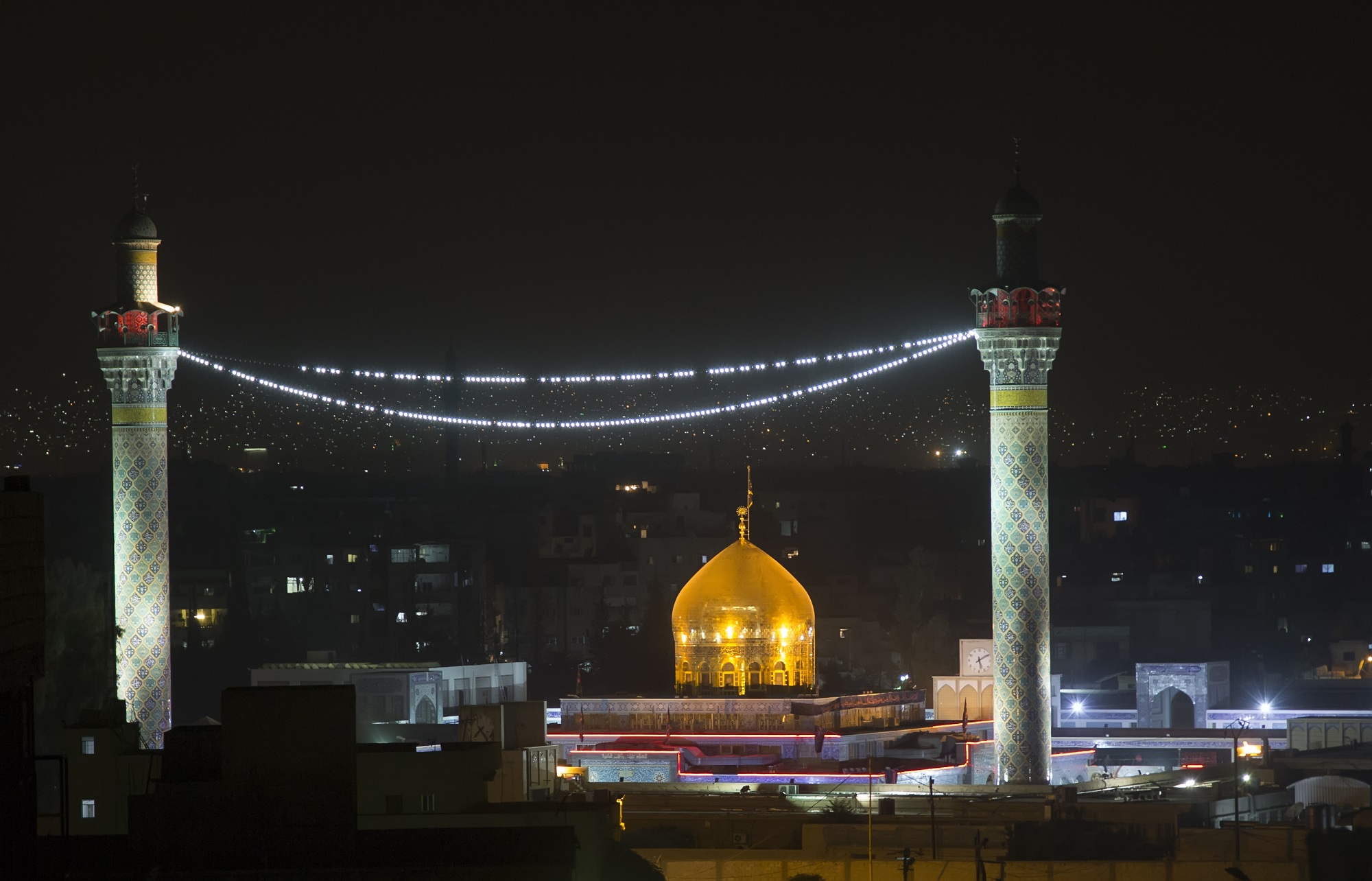American researcher on Lady Zainab: The Lioness of Karbala who challenged her oppressor at the weakest stage of her life

The Pakistani 'Daily Times' newspaper published an article by the American researcher Anna Gephart about her experience that she lived when hearing the tragic and painful story of what happened to the family of the Prophet, especially Lady Zainab, peace be upon her.
"As a non-Muslim American I was in my “World of Islam” class at American University ready to learn about Islamic history when my professor, Ambassador Akbar Ahmed, introduced our class to the story of a seminal event in Islamic history, the tragedy of Karbala and one of the great heroic names to emerge from it, Zainab bint Ali. Zainab’s powerful story forever changed my perspective and my life,” said Gephart at the beginning of the article.
The American researcher continues, “The story of Zainab is one that is well-known in the Islamic world. Zainab was the highly respected granddaughter of the Prophet Muhammad, the daughter of Fatima bint Muhammad and Ali ibn Abi Talib and sister to Hassan and Hussain bin Ali. Muslims add the title Hazrat to these figures as a term of respect because they are widely revered and loved throughout the Muslim world. Her family was in danger, as the Umayyad Caliph Yazid was fixed on hunting down and killing the male descendants of the Prophet. In the year 680 CE, Yazid and his giant army battled the tiny force led by Hussain ibn Ali who had fearlessly set out to challenge the tyranny and injustice of Yazid. At Karbala, Yazid had all water supply cut off from the Prophet’s family and then ruthlessly attacked and killed them. Afterwards, he had his army take prisoners then looted and burned down their camp. Zainab’s two sons and her beloved brother, Hussain, were callously killed while she was taken as a prisoner."
Gephart continues narrating the brutal treatment against Lady Zainab as they were taken to Yazid, who boasted of his strength and defeat of the Prophet’s family.
“There stood Zainab, a descendent of the Prophet who had just witnessed the brutal slaughter of her family and their supporters, before the tyrant who ordered their deaths. This same tyrant now further disrespected her brother, Hussain, by mocking Hussain’s severed head at his feet. She had been taken prisoner and unveiled, pained by unimaginable sorrow in the immediate aftermath of her family’s murder. Yet, despite everything that she just went through, she showed great courage and strength. She held her head up high and spoke out against Yazid. She denounced his treatment of Hussain and her fellow prisoners. She powerfully denounced Yazid before his subjects and before God. She told Yazid that she had seen the Prophet himself kiss the head of Hussain that he disrespected. In this haunting part of her speech, she said to Yazid,
“I do not fear anyone except Him and do not complain to anyone else, and rely upon Him Alone. You may utilize your treachery, traps, and disloyalty, but I swear that the shame and disgrace, which you have earned by the treatment meted out to us, cannot be eradicated. You shall never be able to wipeout our memories, and inspiration from the midst, nor will you ever be able to wipe off the disgrace of these events."
The researcher adds, “It is said that the nobles in court, Muslims, Christians and Jews, were so moved they pleaded with the Caliph to show mercy. This is a 7th century woman speaking out with great bravery and eloquence against a powerful male tyrant. Though this alone was enough to inspire me, but Zainab’s story did not end here. After her moving and forceful rebuke, Yazid was coerced into letting the prisoners go out of fears of a potential rebellion in reaction to Zainab’s stunning act of defiance. Zainab then moved back to Medina and started educational centres of learning especially for women. She dedicated her life to promoting the education of women. Overnight she was creating a whole generation of females studying law, theology and promoting social activism. The world would never be the same again.”
Gephart reaffirms that Zainab’s story is undeniably inspiring. This remarkable woman spoke against her oppressor at her lowest moment and then continued her already heroic story by establishing a place dedicated to the education of young female students. Her story is a great source of pride and inspiration throughout the Islamic world and is a tribute to feminist ideals all across the world. So, my question is, why had I never heard of her before?
She concluded, “I previously learned about feminists from the Western world through my time in school; figures like Joan of Arc, Susan B. Anthony, Margaret Sanger, and many others. Yet, in Zainab bint Ali, I found a woman who exemplified feminist ideals all the way back in the seventh century, and I had never seen her noted as a major feminist figure. I have just started my in-depth journey of learning about Islam with this class, and while learning about Islam is giving me a new perspective, Zainab’s story resonated with me in a unique way. Her story personally impacted me on many levels. First, it showed me that the power of a woman dates back farther than I had imagined. Second, this story made me angry. It made me angry because I had lived all my life without learning about such an influential feminist that predates many Western feminists I previously learned about. Zainab embodied a true hero and a feminist by standing up for justice and fostering an established learning system, and while she is respected and loved by the Islamic world, she seems to still be ignored by the Western world.”





